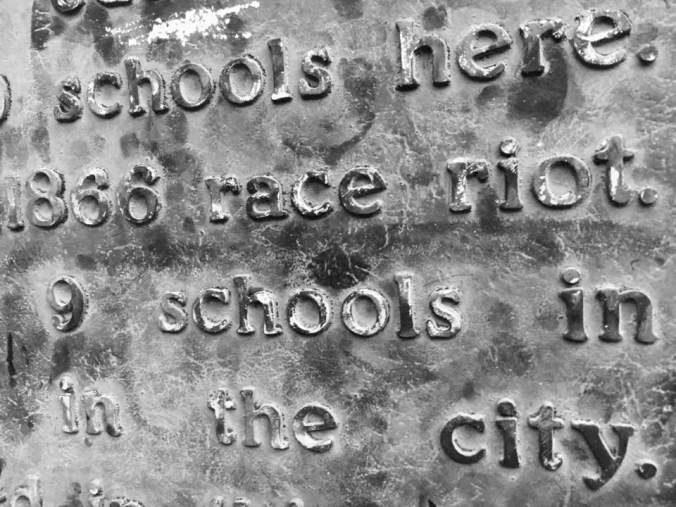Memphis. Racism, violence, displacement and the riots of 1866.

Anne and I are here in Memphis, enjoying what the city has to offer in great barbecue and blues.
Last night we enjoyed both. I had the dry-rubbed brisket and we danced to Preston Shannon’s guitar while his band played 70s funk. He’s a local Memphis guy who is great. Anne bought his CD.
The main reason we decided to come to Memphis was to take part in tomorrow’s commemoration of the murder here of Dr. Martin Luther King 49 years ago.
Rev. William Barber will be the featured speaker. Barber leads the Moral Monday Movement in North Carolina.
There is a plaque on what is now a bank building a block off the tourist mecca of Beale Street. It marks the spot where a Reconstruction school, created by the Freedmen’s Bureau, for Black students once stood and was burned to the ground in the anti-Black riots of 1866.
Following the war and as a result of Reconstruction former slaves and African American soldiers who had fought for the Union began to settle in Memphis. Tensions ran high, particularly between white Memphis police and the former soldiers.
After an altercation between the police and soldiers, mobs of white civilians and policemen rampaged through African American neighborhoods. Their Memphis. Racism, violence, displacement and the riots of 1866. | Fred Klonsky:
